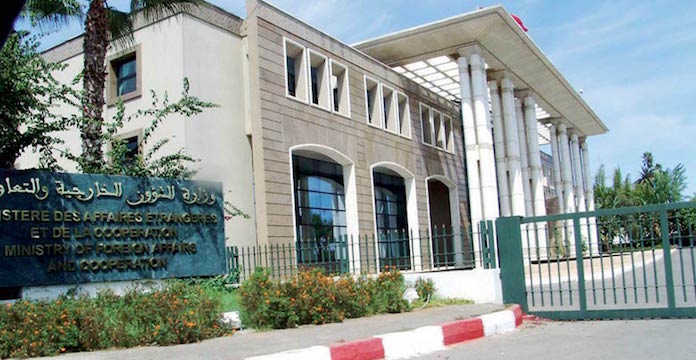The resolution adopted, Thursday, by the European Parliament does not change the political nature of the bilateral crisis between Morocco and Spain, the Ministry of Foreign Affairs, African Cooperation and Moroccans Abroad said on Friday.
In a statement, the ministry said that attempts to Europeanize this crisis are useless and do not alter its purely bilateral nature, its root causes and the proven responsibility of Spain in triggering it. “The instrumentalization of the European Parliament in this crisis is counterproductive.
Far from contributing to the solution, it is part of a logic of short-sighted political escalation”, noted the ministry, adding that this maneuver, which aims to circumvent the debate on the underlying reasons behind the crisis, does not fool anyone. For the ministry, the resolution is out of phase with Morocco’s exemplary accomplishments in migration cooperation with the European Union.
“These are the same people, trying to criticize Morocco in this area, who actually benefit from the concrete and daily results of cooperation on the ground,” it said. It recalled that no one in Europe can question the quality of the partnership between the European Union and Morocco in all areas, including migration.
The figures are there to confirm it (since 2017 alone, migration cooperation has enabled the foiling of more than 14,000 illegal migration attempts, the dismantling of 5,000 trafficking networks, the rescue of more than 80,500 migrants at the sea and the preventing of countless storming attempts), the same source stressed.
“Moreover, Morocco does not need a guarantee in its management of migration. The posture of the teacher and the pupil does not work anymore.
Paternalism is a dead end. It is not the punishment or the reward which induces behaviors, but rather the conviction of a shared responsibility,” said the ministry. The resolution of the European Parliament runs counter the spirit of the partnership between the Kingdom of Morocco and the European Union, it added, considering that by trying to stigmatize Morocco, it is in reality the very principle of partnership that it weakens.
“It shows, across the EU’s southern neighborhood, that even the oldest and most successful constructions can be the subject of untimely and opportunistic actions at the European Parliament,” it noted.
“As much as Morocco is satisfied with its relationship with the European Union, it deems that the problem remains with Spain, as long as the reasons for its triggering have not been resolved”, noted the ministry, adding that the Morocco has never judged the partnership with the EU by cyclical incidents but on the basis of a long-term reliable action. Moreover, the position of the Member States of the Commission and of the External Service has been constructive regarding Morocco’s key role in the Euro-Mediterranean partnership and the positive appreciation of cooperation in the field of migration, the ministry concluded.





